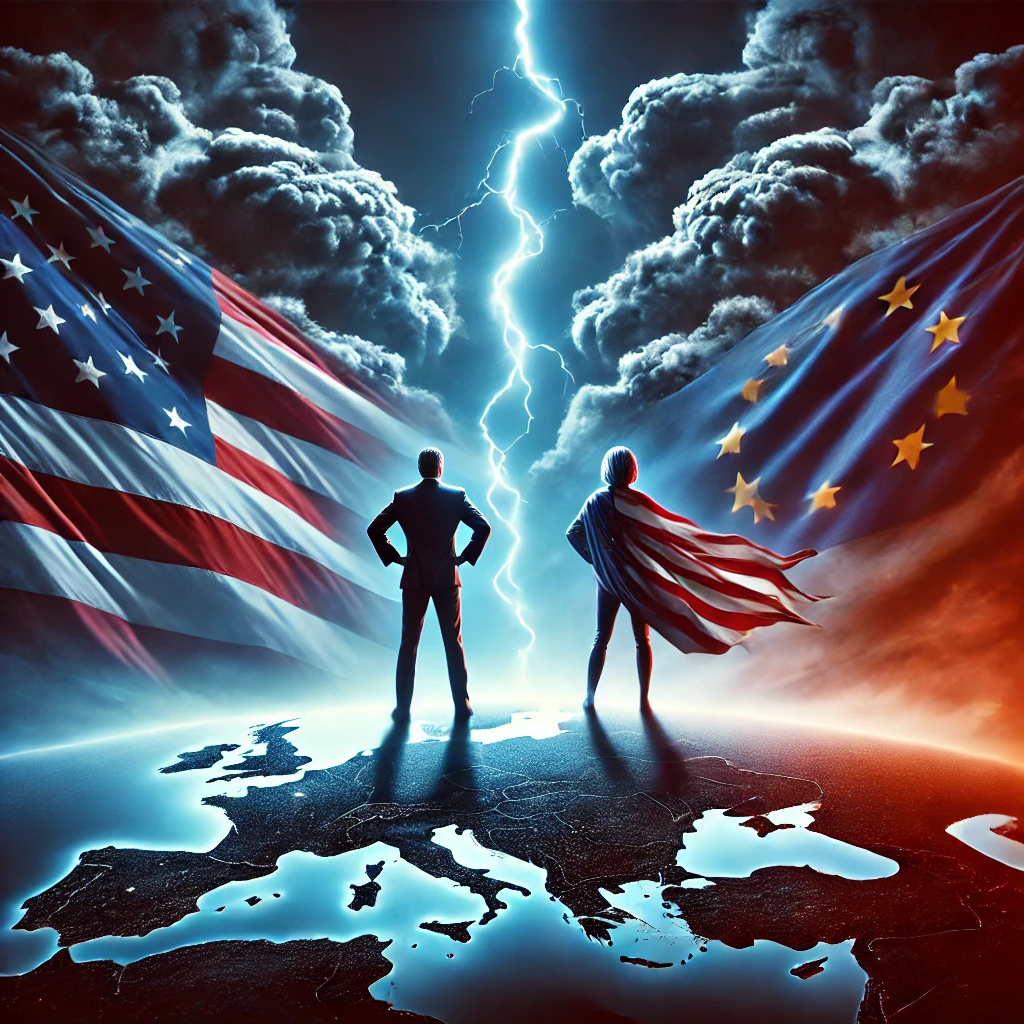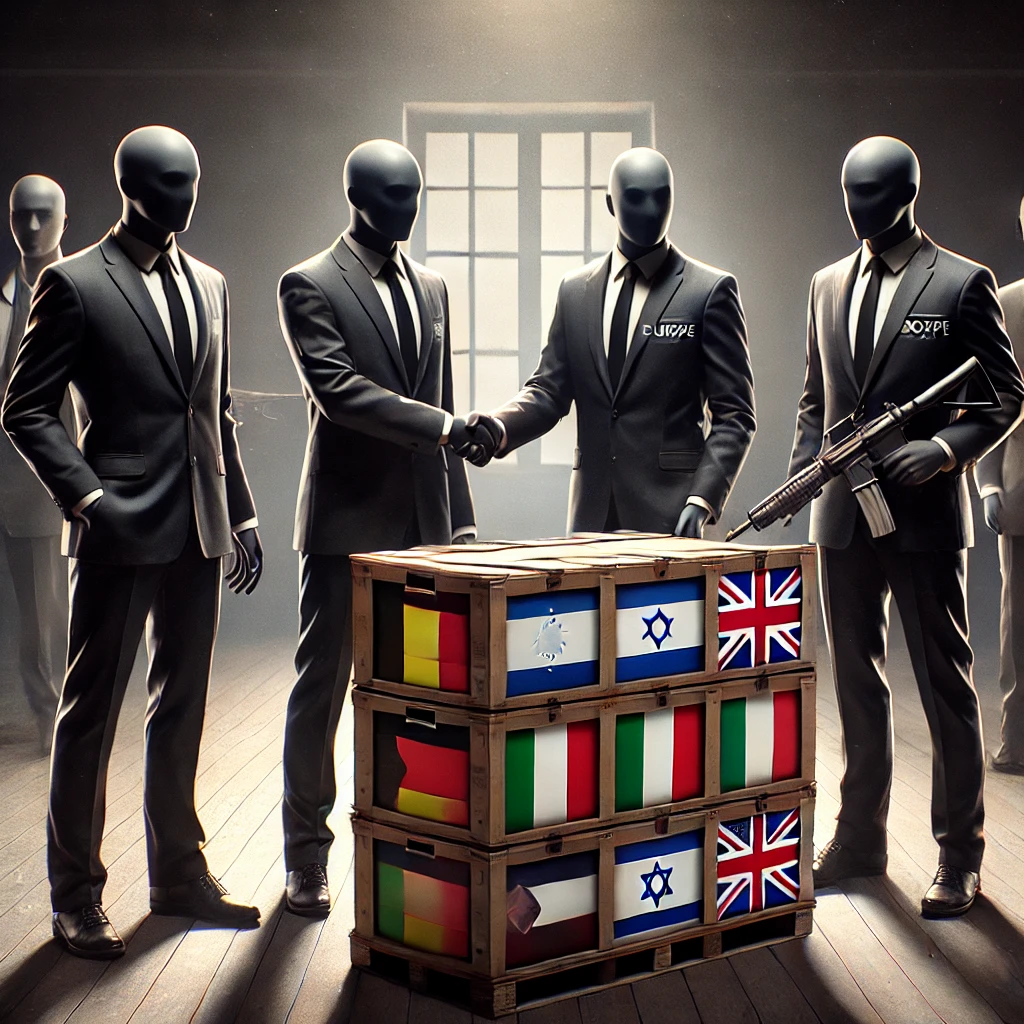Europe faces a critical juncture as it prepares for the outcome of the 2024 U.S. presidential election. Whether Kamala Harris continues Joe Biden’s policies or Donald Trump returns with his disruptive approach, European leaders must now rethink their strategic approach to the United States. The continent can no longer afford to rely solely on the whims of Washington; it needs a unified strategy that addresses the challenges of a shifting global order, diminished U.S. involvement, and the rise of multipolarity. Europe’s future security and prosperity depend on its ability to engage with the U.S. from a position of strength and collective purpose.
Beyond Election Results: A Collective Plan for Europe
European capitals are buzzing with speculation on how the 2024 U.S. election will impact transatlantic relations. Harris’s commitment to NATO contrasts sharply with Trump’s dismissive stance on European security. However, focusing solely on the candidates’ positions is a short-sighted approach. Europe must develop a long-term plan that ensures its interests are protected, regardless of who holds the Oval Office. A failure to do so risks fragmentation among European nations, each vying for Washington’s attention. This competition could weaken the continent’s global standing and undermine Europe’s collective security.
The U.S. is increasingly focused on China, seeing the Indo-Pacific as its main battleground for influence. Europe, therefore, cannot afford to be complacent. With the rise of protectionist and isolationist sentiments in Washington, Europeans must reassess their reliance on the U.S. and form a cohesive strategy that outlines shared priorities, particularly regarding security, trade, and technological collaboration. A divided Europe will only strengthen U.S. leverage, leaving individual nations vulnerable to shifting American political tides.
Trump’s Possible Return: A Threat to Transatlantic Relations
A second Trump administration would undoubtedly strain U.S.-Europe relations. Trump’s view that Europe exploits the U.S. for security funding could lead to a withdrawal of support for Ukraine and NATO. His potential deal-making with Russia could sacrifice Ukraine’s territorial integrity, destabilising Eastern Europe and undermining the EU’s security framework. Trump’s running mate, JD Vance, has already voiced strong opposition to further U.S. aid to Ukraine, advocating instead for focusing on the Asia-Pacific region.
This is not just about Trump, though. The U.S. public’s fatigue with foreign wars and the congressional gridlock on Ukraine aid highlight a broader shift. Regardless of who is elected, Europe cannot depend on American consistency. Instead, it must plan for greater self-reliance in its defence capabilities, taking on more responsibility within NATO and supporting Ukraine through independent means. In a multipolar world, the U.S. may not always be the steadfast partner Europe has known.
Europe’s Strategic Response: Unity is Key
Europe has made some headway in recent years by developing a strategic outlook towards China and strengthening its cyber and economic security. However, the EU must now apply the same effort to recalibrating its relationship with the U.S. Europe needs a strategy that defines its interests clearly, especially regarding shared defence responsibilities, technological competition, and global challenges like climate change and trade. The key to success lies in projecting a unified and coherent voice, ensuring Washington takes European interests seriously.
Instead of transactional relationships with individual EU members, the U.S. must see Europe as a strategic partner with a clear agenda. This approach not only strengthens Europe’s global standing but also ensures that transatlantic relations remain strong, even in the face of political changes in Washington. With the Indo-Pacific taking precedence for the U.S., Europe needs to step up and show that its contributions to global security are indispensable.
Defence and Economic Realignments
One of Europe’s biggest challenges lies in bolstering its defence capabilities. Over-reliance on U.S. military support must be addressed by increasing European defence spending and investing in key areas like air and missile defence, drone technology, and military logistics. By developing its defence industry, Europe can reduce its vulnerability to changes in U.S. policy and create a more balanced NATO alliance.
Similarly, Europe must protect its economic interests in light of U.S. protectionist policies like the Inflation Reduction Act, which encourages U.S. companies to dominate the green tech industry. European manufacturers face pressure to relocate to the U.S. to benefit from favourable conditions, which could undermine Europe’s own green transition. By working together on trade and technology policies, Europe can counterbalance U.S. economic pressure and secure its place in the global market.
Moving Forward: A Unified European Voice
Ultimately, Europe must present a united front. A divided approach, where individual nations pursue bilateral deals with Washington, will only weaken the continent’s position. A well-articulated strategy developed through the EU’s institutions will allow Europe to navigate the complexities of its relationship with the U.S. while preserving its core interests. Such a strategy must also include non-EU countries like the United Kingdom and Ukraine, which are crucial to Europe’s broader security framework.
As Europe redefines its relationship with the U.S., it must ensure that it remains a key player in addressing global challenges like climate change, trade imbalances, and geopolitical instability. By coordinating closely with Washington, while also asserting its independence, Europe can secure a more balanced and mutually beneficial transatlantic partnership.
As the 2024 U.S. election approaches, Europe faces significant uncertainty. However, instead of reacting to the outcome, the continent must focus on building a long-term strategy that ensures its security and prosperity in an increasingly multipolar world. Unity and self-reliance will be crucial in navigating the shifting dynamics of U.S. foreign policy. The time has come for Europe to assert its role on the global stage and secure its interests independently of who sits in the White House.
Source: foreignaffairs.com






